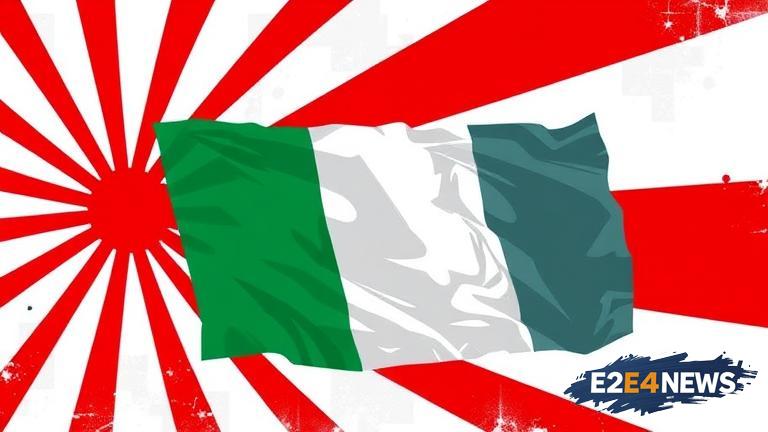In a recent development, the Japanese government has come out to deny reports of plans to create special visas for skilled Nigerians. This announcement comes as a surprise to many, as earlier reports had suggested that Japan was considering introducing a new visa program aimed at attracting highly skilled workers from Nigeria. The Japanese government has stated that there is no truth to these claims, and that their current visa policies remain unchanged. This news is likely to disappoint many Nigerians who had been hoping to take advantage of the rumored visa program. The Japanese government has emphasized that their visa policies are designed to attract the best and brightest talent from around the world, but that they do not have any plans to introduce special visas for specific nationalities. Despite this, Nigeria remains an important partner for Japan, and the two countries continue to cooperate on a range of issues, including trade and investment. The Nigerian government has not commented on the Japanese government’s denial of the special visa program. However, it is likely that the news will be met with disappointment from many Nigerians who had been hoping to pursue opportunities in Japan. The Japanese government’s decision not to introduce special visas for skilled Nigerians is likely to be seen as a missed opportunity for both countries. Japan is facing a severe labor shortage, and many had seen the rumored visa program as a potential solution to this problem. On the other hand, Nigeria is facing high levels of unemployment, and the special visa program had been seen as a potential way for skilled Nigerians to find work abroad. The denial of the special visa program is also likely to have implications for the broader relationship between Japan and Nigeria. The two countries have a long history of cooperation, and the special visa program had been seen as a way to strengthen ties between them. Despite this, the Japanese government’s decision is likely to be seen as a setback for relations between the two countries. In recent years, Japan has been actively seeking to attract more foreign workers, as part of efforts to address its labor shortage. However, it appears that this will not include special visas for skilled Nigerians. The Japanese government has stated that it will continue to accept visa applications from Nigerians, but that these will be considered on a case-by-case basis. This means that skilled Nigerians who are interested in working in Japan will still be able to apply for visas, but that they will not have access to a special visa program. The denial of the special visa program is likely to be met with disappointment from many Nigerians, who had been hoping to pursue opportunities in Japan. However, it is also a reminder that the Japanese government’s visa policies are designed to attract the best and brightest talent from around the world, regardless of nationality. In conclusion, the Japanese government’s denial of plans to create special visas for skilled Nigerians is a significant development that is likely to have implications for both countries. While the news may be disappointing for many Nigerians, it is also a reminder of the importance of cooperation and diplomacy between nations. The Japanese government’s decision is likely to be seen as a missed opportunity for both countries, but it also highlights the need for continued cooperation and dialogue between Japan and Nigeria. As the two countries continue to navigate their relationship, it is likely that the issue of visas and immigration will remain an important topic of discussion. The Japanese government’s denial of the special visa program is a reminder that the issue of immigration is complex and multifaceted, and that it requires careful consideration and cooperation between nations. Despite the denial of the special visa program, it is likely that the relationship between Japan and Nigeria will continue to evolve and strengthen in the coming years. The two countries have a long history of cooperation, and it is likely that they will continue to work together on a range of issues, including trade and investment. The denial of the special visa program is a setback for relations between the two countries, but it is also a reminder of the importance of cooperation and diplomacy between nations.
